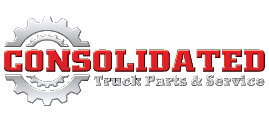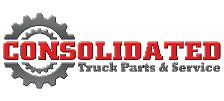“Going Green” and using “alternative fuels” are very popular buzzwords at the moment for many reasons from protecting our earth’s future to reducing our reliance on fossil fuels. Studies have shown that using alternative fuels like propane and compressed natural gas (CNG) is economic in the long run and improves the social image of a transport fleet, but the startup costs and other varied factors make it a very challenging decision for any fleet or company management. The following is a short overview of several major factors and concerns that should be considered and addressed in the decision of shifting to alternative fuels.
Vehicle Expenditures
Alternative fuel trucks are more expensive, when compared to traditional diesel powered trucks, but with the saving on fuel costs alone they are very likely to make up the cost difference in increased profits over a period of time. In addition, the governments keep introducing tax savings and other incentives for companies that use alternative fuel and this may be helpful in lowering the overall expenditure on a truck fleet. Assuming that fuel prices stay the same, for those that are willing to wait an alternative fueled fleet would be cheaper over a period of time.
Refueling Arrangements
Alternative fuel truck do require unconventional means of refueling and you will need to consider the installation costs unless you are one of the fortunate ones with a station located in your immediate area. The following are ways of refueling any alternative fuel truck:
- Hybrid vehicles usually run on diesel, but the hybrid electric cars that charge by plug will need a power pole installed.
- CNG engines are filled through a CNG Fueling Station:
- Fast Fill is able to fill a tank in about the same time as that of a diesel tank by a regular filling station.
- Slow fill Stations would take up to several hours for filling the cylinders and the trucks are usually best left overnight for this purpose.
- Propane vehicles are easier to refill as the filling station does not need any major installation and you can get it done through large portable tanks on skids that can be placed in the companies parking lot.
Maintenance Issues
Not only are the alternative trucks different to refuel, but they also have their unusual maintenance issues and they must be planned for in the transition to alternative fuels.
- A CNG vehicle usually develops a fault with the air filtration system as the oil used to compress the natural gas might enter and clog the filters. In addition, the spark plugs need to be changed periodically, which is not the case with ordinary gasoline vehicles. Cylinders need to be tested for dents and cuts every two years and any fault in them would need their replacement.
- Propane vehicles also require the added repairs and maintenance of the CNG vehicle.
- A hybrid system is essentially self-contained and does not require any regular maintenance as the vehicle is smart enough to shift to diesel in case it develops a fault and the error code is displayed. However, in order to correct the fault technicians not only must be knowledgeable, but also have access to the specialized tools and technology so major repairs are typically done at the dealership or certified repair facility. The cost of spares may also be higher.
Safety Issues
Alternative Fuel vehicles require stricter safety checks and need to be handled only in secure environments. While an open flame heating system is permitted in any usual repair shop, it is strictly prohibited in any CNG or propane truck shop. An adequate ventilation system might be ignored for a conventional workshop, but it is a major concern in case of any CNG or Propane vehicle. Gaseous fuel leak detectors are also installed at different locations in the workshop, depending upon the type of the truck being repaired.
Using alternative fuels is economic, but does require adequate planning and foresight before making the decision. If the hurdles involved with the decision are understood and considered in entirety, the company can improve its image and save on the cost of operating and maintaining its fleet.


